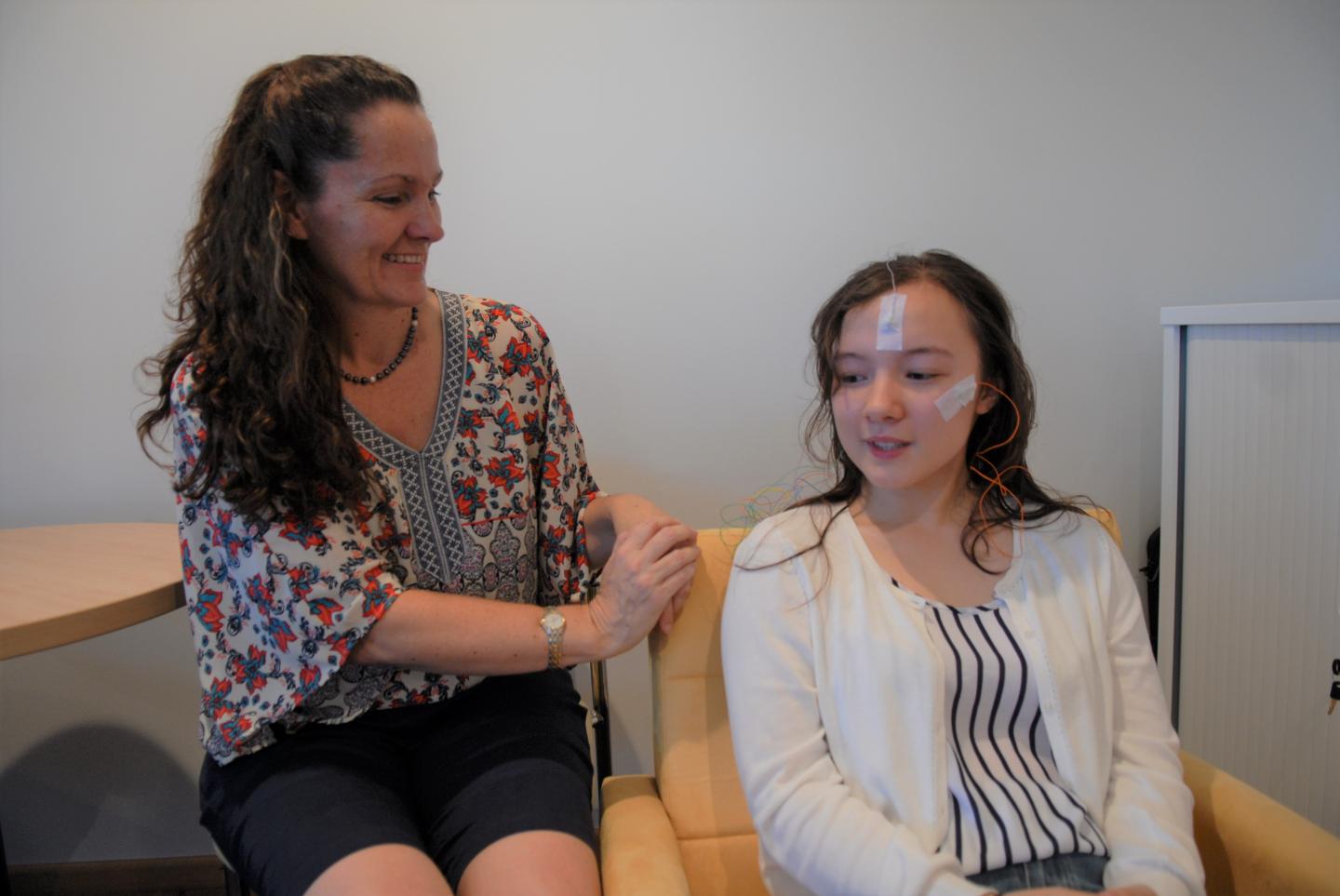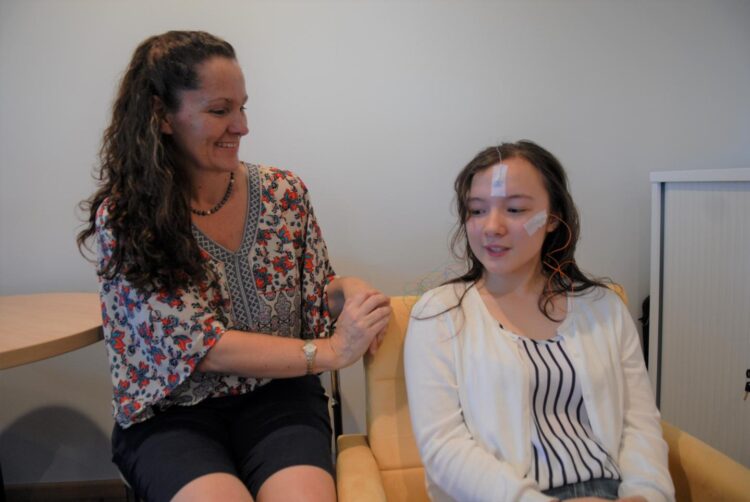…but easy interventions can improve mental health

Credit: Flinders University
Sleep patterns around the world have been disrupted as screen time increases and sleep routines change with COVID-19 self-isolation requirements.
Negative mood is not unusual in adolescence, but lack of sleep can affect mental health, causing anhedonia (or loss of pleasure), anxiety, anger and significantly increasing the risk of depression, a global study of more than 350,000 teens shows.
The results just published in Sleep Medicine Reviews connects less sleep with a 55% increased chance of mood deficits and double the risk of reduced positive mood.
From Asia, to Australia, New Zealand, Europe and North America, sleep clearly was a modifiable risk factor that can improve or depress mood in adolescents, says Flinders University sleep researcher Dr Michelle Short.
“Sleep duration significantly predicts mood deficits on all mood states, including
increased depression, anxiety, anger, negative affect and reduced positive affect,” she says, with less sleep linked to an 83% higher chance or anger, 62% increased risk of depressed mood, and 41% higher risk of anxiety.
“Fortunately, there are many interventions individuals, family, the community and even public policy can encourage to maintain regular sleep in this at-risk population to reduce the likelihood of these problems spilling over into mental health issues needing clinical treatment,” she says.
The researchers also recommend increased parental / guardian regulation of sleep and technology use, delayed school starting times, and monitoring academic and other pressures such as out-of-hours tutoring does not impede sleep routine.
Dr Short says that “while positive mood doesn’t get much attention, it is still clinically relevant as one of the key symptoms of depression in anhedonia (loss of pleasure).”
“It is imperative that greater focus is given to sleep as for prevention and early intervention for mood deficits,” the study concludes.
###
‘The Relationship Between Sleep Duration and Mood in Adolescents: A systematic
review and meta-analysis (2020) by MA Short, SA Booth, O Omar, L Ostlunch and T Arora has been published in Sleep Medicine Reviews DOI: 10.1016/j.smrv.2020.101311
Media Contact
Michelle Short
[email protected]
Related Journal Article
http://dx.





